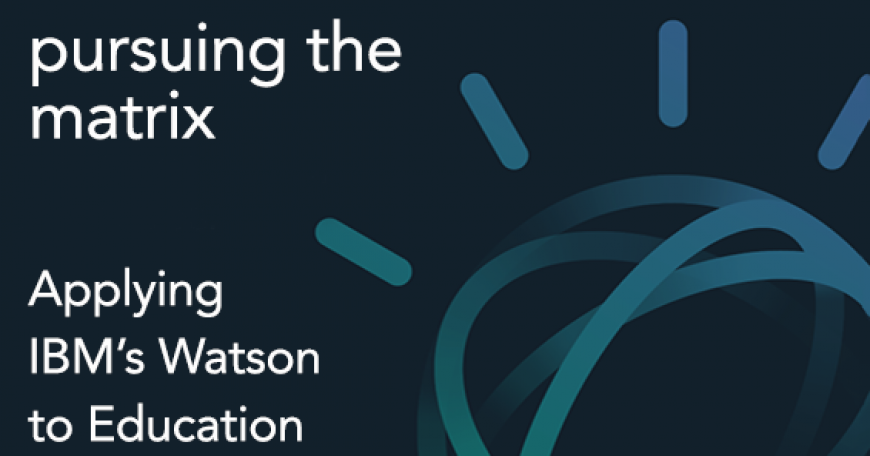
Pursuing the Matrix: Applying IBM’s Watson to Education
What is an ideal learning environment, and how can computers help us get there? For Satya Nitta of IBM, the answer- the ‘holy grail’ of learning- lies in an immersive, fully engaging educational experience. Near the end of his keynote talk at MIT’s Festival of Learning, he related an anecdote about Neuromancer- the novel that coined the term “the matrix.” Walking through town, the author saw children at the arcades “totally engaged in experience and blinded to the outside world.” This observation was his inspiration for the novel.
Dr. Nitta wistfully asserts that we “might be able to get back there [to that level of immersion].” But instead of alien invaders and pac-man, the arcades of the future might feature the descendants of computer systems like Watson. And in addition to advancing to the next level of the game, these future children would be advancing to the next level of their education.
For those of you unfamiliar with Watson, it is a computer system that can answer questions when they are posed in natural language. Perhaps most famously, in 2011 Watson won first place on the show Jeopardy! in a competition against former winners. Dr. Nitta’s project has been to apply Watson in the education space as a teaching assistant. This technique of utilizing a computer as a tutor has been termed adaptive learning.
Of course, there is a natural question to Dr. Nitta’s vision of education. Do we really want an ‘educational matrix’? The matrix is, after all, iconic for being as morally questionable as it is powerful. It brings to mind worlds controlled by computers, and people so engaged in technology that they ignore each other.
In a less extreme sense, we might wonder about the role of human teachers. Would such an adaptive learning system seek to replace them?
Dr. Nitta was careful throughout his talk to address these concerns. He emphasized the role of Watson as “a supplement” to- rather than a replacement for- human teachers.
Furthermore, at every turn of his talk Dr. Nitta was careful to discount the possibility of Watson being or becoming sentient. Just because it talks like a human doesn’t mean that it thinks like a human- a distinction Dr. Nitta revisited multiple times. “These machines are mindless,” he assured us, “You don’t have to worry about them being intelligent anytime soon.” He cited a quote from Daniel Dennet, which asserts that “human tendency is always to over-endow them [machines using AI] with understanding.”
But what does that mean, exactly? Dr. Nitta admits that “there are attributes of intelligence that machines seem to be displaying,” but that this is an illusion. Just because a chatbot can carry on a relatively normal conversation with you doesn’t mean that it knows how to think. Although Watson won Jeopardy!, “it didn’t know it won Jeopardy!” Dr. Nitta said confidently. Rather, he asserted that machines like Watson are simply a “bunch of capabilities.”
For my part, I agree this seems wholly accurate- at least for now. Dr. Nitta said, with no small degree of excitement, that “there’s a long way to go here!”
So, for now, Watson- like that most famous sidekick of the same name- becomes more and more adept as an assistant. If it is merely a bunch of capabilities, it is at the very least an impressive and ever-increasing bunch of capabilities. The fact that I find most potentially problematic is that you could, if you were so inclined, describe almost any organism as a set of capabilities.
Perhaps one day we will reach Dr. Nitta’s holy grail of fully immersive and engaging educational experiences powered by Watson’s descendants. But could we then draw such a well-defined line between intelligence and capability? If we had a machine that could do everything a human could do- and then some- could we not say that it has its own form of intelligence? It is certainly an interesting question to ponder!

